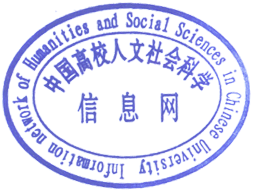关 键 词 :《1844年经济学哲学手稿》;共产主义;私有财产;人的本质学科分类:马克思主义--马恩列斯思想研究
《1844年经济学哲学手稿》是马克思早期的著作,在这部著作中对于共产主义思想首次进行了深刻的探讨,并表明了共产主义是对私有财产的积极扬弃、人向自己本质的复归以及完成了的自然主义和人道主义的核心观点。马克思论证私有制将人与劳动、社会关系隔离,共产主义则旨在解放劳动,使其成为自由发展的手段。共产主义呼唤真正的人的自由,使个体从为生计而被动劳动的限制中解放,实现自身潜能的全面发展。与此同时,手稿对私有制提出深刻批判,认为其导致资源不平等分配。共产主义追求建立公正社会制度,以消除社会贫富差距。最终,手稿关注人与自然的关系,主张共产主义实现人与自然的和谐共生,推动可持续发展。这一思想框架奠定了马克思主义的基础,对社会问题提供深刻洞察,为未来社会变革提供理论支持,具有深远的历史和现实意义。
The Economic and Philosophical Manuscript of 1844 is an early work of Marx, in which the communist ideology was deeply explored for the first time, and it was demonstrated that communism is a positive abandonment of private property, a return to one's own essence, and the core views of completed naturalism and humanism. Marx argued that private ownership isolates people from labor and social relations, while communism aims to liberate labor and make it a means of free development. Communism calls for true human freedom, freeing individuals from the constraints of passive labor for their livelihoods and realizing the comprehensive development of their own potential. At the same time, the manuscript provides a profound critique of private ownership, arguing that it leads to unequal distribution of resources. Communism pursues the establishment of a just social system to eliminate the wealth gap in society. Ultimately, the manuscript focuses on the relationship between humans and nature, advocating for communism to achieve harmonious coexistence between humans and nature and promote sustainable development. This ideological framework lays the foundation of Marxism, provides profound insights into social issues, and provides theoretical support for future social changes, with profound historical and practical significance.

